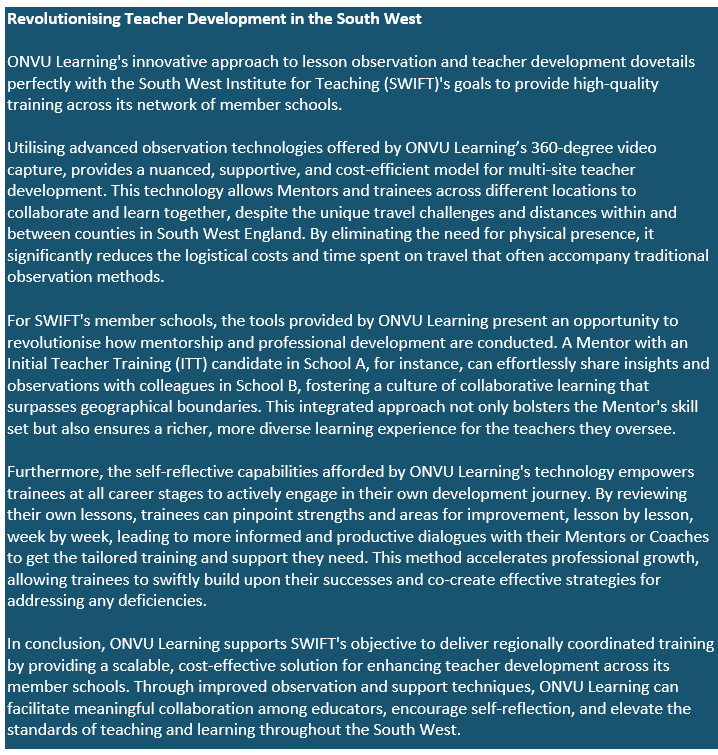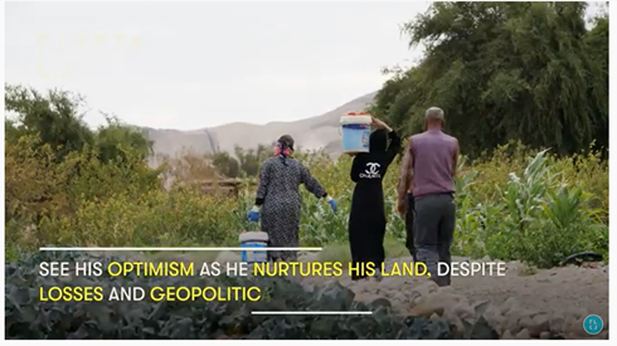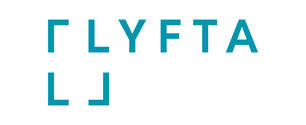|
11/7/2024 0 Comments SWIFT EVENTS Newsletter | Issue 17 This final EVENTS issue for the academic year 2024 - 2024 includes a featured article, as well as highlighted programmes, courses and events from our partners to support your professional development and enhance the work of your school. Featured in this issue we have: SWIFT Membership 2024 - 2025 | Registration now open We are delighted to open registration to Schools, Federations, Trusts and other bodies to join SWIFT Membership for 2024 - 2025. Find out more in our Membership Brochure HERE and the link for registration is HERE. Highlighted Programmes:
0 Comments
We are pleased to bring you this final UPDATE of the academic year 2023 - 2024.
Associate & Strategic Leader of Teaching & Research Schools (ESW) Roger Pope CBE begins by considering the secret behind the atmosphere of purpose and calm on a recent LSSW Connect Study Tour Visit to Dixons Academy Trust in Leeds and Bradford: "I was struck by how clearly the leaders articulate what they are doing, why they are doing it and how they are doing it. They speak with a confidence and clarity that is inspiring. They have developed systems that work for every aspect of their operation. They check those systems are working. They invest in staff training and growth. And everything is rooted in the transparent vision and values of the Trust and the individual schools." And ends with a rallying cry to end the year - inspiring all school leaders and staff to return energised after a good break this summer. We look back on the 2024 Summer Conference with collaboration at its heart, knowing that some events are worth reliving. We thank, once again, all our speakers, sponsors and of course, the delegates for being with us. “If everyone is moving forward together, then success takes care of itself.” (Henry Ford) Primary and Secondary Teachers of Art recently enjoyed their very own dedicated Devon Art Teachers' Conference with an enriching and engaging agenda, plus inspiration from the Bovey Tracey’s annual Craft Festival. As a thank you to all Governors, but celebrating this one as he prepares to retire, we interview Paul Brooks, Chair of Kingsbridge Community College Governing Body and SWIFT Trust Board who shares his thoughtful insights into education over the past 40 years. With the ever-important issues of attendance, Kingsbridge Research School explains the Education Endowment Foundation’s new guidance on supporting schools with attendance structured around six evidence-informed themes. Another readable feature is from our sponsor SchoolPro TLC who shares their GDPR and Data Protection expertise in understanding the Birmingham Children’s Services Data Breach and the implications and guidance for school and MAT leaders. Our sponsors have been busy too. The foodie pictures say it all as Educatering whets our appetites in showcasing their menu of delightfully nutritious and exciting food in its school year wrap up. Lucky schools. Exeter Supply Partnership understands the importance of professional development for teachers, but appreciates access whilst working as a supply teacher or Teaching Assistant is not always easy. This is why they provide access to FREE courses and webinars to support their Supply Team to keep up-to-date whilst working and to help them to prepare for the next step in their career. ONVU Learning reflects on excellent teachers creating excellent memories and the characteristics of great teachers. If this sounds like something for you, you can meet and find out more about ONVU Learning in a FREE webinar on Thursday 11 July 2024 from 0830 – 0900. Register here Wherever you are, we hope that these final few weeks will be enjoyable and fulfilling for you all. We are not there yet, but the summer break awaits and we wish you the loveliest holiday and thank you for working with us this year. 3/7/2024 0 Comments Excellent Teachers Creating Excellent Memories | Reflections on the Characteristics of Great Teachers with ONVU Learning Why did you become a teacher? Which teachers do you remember? Our sponsor, ONVU Learning thinks deeply about the dynamics of teaching and learning and reflects here on excellent teachers to inspire the next generation of teachers. We all remember that one teacher who was more than an educator. A Mentor, a guide, and a catalyst for personal and intellectual growth. Their passion for their subject matter was infectious, igniting a similar enthusiasm in you. They possessed an uncanny ability to recognise and nurture your individual strengths, encouraging you to pursue your dreams with confidence. Their lessons may have extended beyond textbooks, imparting valuable life skills and wisdom that resonated long after the school bell rang. Through their unwavering support and belief, they instilled a sense of purpose and self-worth, with memories of their kindness, patience and innovative teaching methods remaining a source of inspiration. Perhaps it was that inspiration that led you to teaching. Creating Lasting Impressions Excellent teachers have the unique ability to create lasting, positive memories for their students, shaping their lives in profound ways. As educators, they transcend the traditional role of a subject teacher. Through dedication and enthusiasm, their classrooms are transformed into spaces of inspiration and discovery. They foster a love for learning, ignite passions, and build confidence, leaving an indelible mark on their students. For some, the absence of such teachers in their own education becomes a powerful motivator to be the teacher they never had. These reflections underline a critical truth: inspirational teachers are not only transmitters of knowledge but are pivotal in nurturing well-rounded, motivated individuals who carry their influence long into adulthood. Empowering Teachers for Excellence: Strategies to Create a Supportive, Judgment-Free Environment Empowering teachers to excel requires a clear vision and a nurturing environment that supports their growth without judgment. Schools must foster a culture where teachers feel valued, heard, and encouraged to innovate; which means creating collaborative spaces for sharing best practice, challenges, and successes. By involving teachers in decision-making processes and policy development, schools can cultivate a sense of ownership and commitment. Recognising and celebrating teachers' achievements can significantly boost morale and motivation. Ensuring teachers have access to necessary resources and a supportive administration creates a foundation where they can focus on what they do best: teaching and inspiring students. Tailored Teacher Professional Development: Introducing Practical, Customizable Tools Effective teacher development must be bespoke, in recognising the varying stages of a teacher's career and their unique classroom dynamics. Initial Teacher Training (ITT) and the Early Career Framework (ECF) establish foundational practices and habits. However, further professional development needs to be adaptive, helping experienced teachers maintain good practices whilst responding to new challenges, such as changing student demographics. Practical examples include coaching approaches to fine-tune teaching practices, growing teacher agency to encourage confident, well-chosen risks, and making it standard practice to discuss teaching methods alongside insights from authentic lesson observation feedback. This approach ensures that professional development is not a formality, but a meaningful, growth-oriented process that aligns with the evolving educational landscape. Sustainable Strategies for Teacher and Student Success: Actionable Steps for Schools To sustain and enhance teacher development, schools must implement strategies that ensure continuous growth and competitive advantage. 1. Keep whole school training days focused on vision and policy, rather than granular, practical implementation, allowing for a clear, unified direction. 2. Middle leaders should be equipped to evaluate the impact of actions, moving beyond mere box-ticking to genuine, impactful assessments. 3. Teachers should be provided with the tools to play, practise and perform, and the confidence to know that they will be supported and judged fairly - including fostering an ingrained understanding of their cohort's needs, interests, curriculum demands, and expected outcomes. By embedding these sustainable strategies, schools can create an environment where both teachers and students thrive, ensuring long-term success and a lasting positive impact on the educational community. How is ONVU Learning Supporting Teachers and Schools to Create Lasting Impressions ONVU Learning’s complete 360-degree lesson capture solution helps educators to reflect, collaborate and analyse the entire teaching and learning process. By using 360-degree cameras, your teachers can capture the entire classroom allowing them to review and share clips of best practice from our web-based platform, to improve teaching techniques and empowering teacher autonomy. Schools across the country have been implementing ONVU Learning to enhance their Early Career Framework programmes, to enhance and scale effective Teacher Continuous Professional Development programmes, and ultimately, to improve teaching standards and learning outcomes. Learning is a complex process in which teachers are pivotal. If teachers are to be effective contributors to children’s change in behaviours, attitudes, knowledge and skills then they need a tool that helps them see teaching and learning inside their classroom with clarity and without judgement. By putting the teacher in the driving seat, ONVU Learning allows you to customise your professional development by choosing which lessons to record, choosing what to share and what to keep private, tag and comment on key moments during your lesson and collaborate with colleagues without taking up valuable resource time. To Find Out More
Join ONVU Learning at a FREE webinar on Excellent Teachers Create Excellent Memories on Thursday 11 July 2024 from 0830 – 0900. Hosted by ONVU Learning’s Matt Tiplin and Stella James, you will explore transformative strategies that empower teachers to excel in order to enhance student achievements. You will also look at personalised development plans that combine the best practices of memorable teaching with innovative growth opportunities tailored for teachers. 2/7/2024 0 Comments Data Breach | Implications and Guidance for School and MAT Leaders with SchoolPro TLCOur sponsor SchoolPro TLC shares here their GDPR and Data Protection expertise in understanding the Birmingham Children’s Services Data Breach and the implications and guidance for school and Multi Academy Trust (MAT) leaders. In May 2024, the Information Commissioner’s Office (ICO) issued a reprimand to Birmingham Children’s Trust Community Interest Company (BCTCIC) for an inappropriate disclosure of a child’s personal information. This unfortunate incident underscores the critical importance of robust Data Protection practices, especially when dealing with sensitive data related to children and criminal offences. As leaders in schools and MATs, understanding the implications of this reprimand and implementing key actions can help safeguard your institutions from similar breaches. Overview of the Incident
On 10 November 2022, BCTCIC experienced a significant data breach involving the inclusion of sensitive information about another person in a Child Protection Plan (CP Plan) sent to a family. This breach occurred within the Child Protection and Review (CP&R) department, which routinely handles both personal data relating to children and criminal offence data. The specific incident involved two neighbouring families. Family A had raised concerns about interactions between their child and Child X from Family B. During the formulation of a Child Protection plan, information from a separate strategy meeting with West Midlands Police, containing serious criminal offence allegations against Child X, was inappropriately included and this sensitive data was subsequently disclosed to Family A, resulting in a violation of Data Protection regulations. Key Findings and ICO Reprimand The Information Commissioner's Office (ICO) found that BCTCIC had violated Articles 5(1)(f), 32(1)(b), and 32(2) of the UK General Data Protection Regulation (UK GDPR). Articles that mandate personal data must be processed securely to protect against unauthorised or unlawful processing and accidental loss, destruction, or damage. Several key issues were identified:
Implications for Schools and MATs The ICO have highlighted that Schools and MATs must be vigilant to avoid similar data breaches: 1. Develop Robust Policies and Procedures Ensure that your Data Protection policies include specific, detailed guidance on handling sensitive personal data. This should cover what data is appropriate to share and under what circumstances. 2. Implement Role-Specific Training General Data Protection training is essential, but it should be supplemented with role-specific training. Staff should understand how Data Protection principles apply to their roles within the context of their setting. SchoolPro TLC are developing SEND and Designated Safeguarding Lead-specific Data Protection training to help boost staff confidence when responding to information requests. 3. Conduct Regular Audits and Reviews Regularly review and audit Data Protection practices to identify and mitigate risks. Look at who the school has shared information with, how much and the method for exchange. 4. Regular Records Review Create time to review the records you hold, checking the quality and accuracy. Feedback to staff to support the development of a safer culture within the school. Actions and Recommendations Based on the ICO’s recommendations and the lessons from the BCTCIC incident, there are specific actions for schools and MATs to consider.
Conclusion The reprimand issued to Birmingham Children’s Trust serves as a stark reminder of the importance of robust Data Protection practices, especially when dealing with sensitive information related to children. By understanding the implications of this incident and implementing the recommended actions, schools and MATs can better protect their data, ensure compliance with data protection regulations, and better safeguard their students. As leaders, it is our responsibility to foster both a culture of Data Protection and Child Protection within our settings, by going above and beyond to ensure the safety and privacy of all individuals whose data you handle. Data Protection is Child Protection. By Ben Craig, Director, SchoolPro TLC Ltd 2/7/2024 0 Comments 2024 Devon Art Teachers Conference | plus a FREE creative opportunity for Torbay SchoolsLed by the inspirational Art Subject Specialist, Sam Eyre, from Coombeshead Academy, and supported by Joe Long, Art Lead at The Spires College, Primary and Secondary Art Teachers attended the 2024 Devon Art Teachers’ Conference last month with an informative and inspiring agenda. Attendees benefitted from updates and feedback on the AQA assessment objectives from Aly Diggle-Perry and Sandra Allan from AQA Examination Board, who provided a valuable opportunity for attendees to see an exhibition of exemplar work from students to support assessment. There were lots of resources and links to tap into about grants, funding and projects by freelance artist Claire Harmer; a former teacher, who uses South Devon as the inspiration for her work and works directly with schools (find more information here). Teachers were challenged to delve into the world of AI, as Sam presented opportunities and challenges of implementing artificial intelligence in the art classroom, such as how to use AI to create digital pictures. Enriching information that may help to keep us one step ahead of our learners! One of the most valuable parts of the day centred on networking with colleagues and sharing from experiences, with teachers having an opportunity to share their challenges and find solutions to improve their practice for their pupils. There was also time to explore the vast array of arts and crafts at Bovey Tracey’s annual Craft Festival and to meet many crafts people and observe workshops, demonstrations and talks, taking away ideas to use back in their own settings.  A must for all training days is the refreshments, and Rodney’s café, based at MAKE Southwest, provided delicious lunch and cakes. Feedback from the day was enthusiastic praising: "The range of presentations and passion from each presenter.’ "The opportunity to network with fellow Art Teachers, connect with potential future projects/funding and links with teachers for future CPD links.’ "To hear about relevant issues for Art and Design." "The contacts and varied resources and speakers." Planning is already underway for next year’s conference and looking forward to sharing with primary and secondary Art Teachers across South West schools. With thanks to Sam and Joe for their leadership. Report by Tania Cox, Partner Director, West Country Training School Alliance MAKE Southwest Hosted by Educational Manager Ian Wilkins at MAKE Southwest in Bovey Tracey, this craft education charity is funded by Arts Council England with a thriving membership of over 300 crafts people, with an engaging exhibitions programme and retail gallery, championing the highest standards of craftsmanship since its formation in 1955 and has become a leading advocate for crafts education. A FREE Creative Opportunity for Torbay Schools Craft Council Material World Project - a funded opportunity for school teachers Outreach Programme Craft School is open to all schools nationwide, but other geographical areas have been identified where they would like to increase participation in Blackburn, Kirklees and Torbay with a wish to boost participation from schools with higher levels of Pupil Premium funding. The Craft School Outreach programme will offer additional training to prepare and support teachers through the delivery of Craft School working with 12 teachers from six schools in each region over two academic years. The programme is offered to schools free of charge and will aim to:
Two members of staff from each school, notably Teachers, Teaching Assistants, Technicians or other support staff are all welcome to participate and will be able to attend professional development sessions, which will include an element of practical making.  Torbay Project Timeline Thursday 11 July 2024 from 1630 – 1830 | First face-to-face professional development session. September 2024 | Second Torbay professional development session. September 2024 | Enrol in Craft School: Material World. October 2024 | Third Torbay professional development session. September / October 2024 | Start to deliver Craft School: Material World with learners. To make use of Craft School Teacher toolkit, professional development sessions and other resources. December 2024 | First Torbay online support session. February 2025 | Second Torbay online support session. April 2025 | Submit evidence of learners’ work and making journeys to Craft School: Material World (online portal). May 2025 | Judges select work for awards (one per Key Stage). June 2025 | Online celebration event for all participants. Commitment from Schools Participating schools will be asked to commit to the following:
For More Information
Contact Hassina Khan or Ian Wilkins.  This issue includes a featured article and some highlighted programmes, courses and events from our partners to support your professional development and enhance the work of your school. Simply click on the booking link to the course or event you are interested in to get more details or book straight on! Featured in this issue we have: SWIFT Membership 2024-2025 | Registration now open We are delighted to open registration to schools, federations, trusts and other bodies to join SWIFT Membership for 2024-2025. Our Membership Brochure can be found HERE and the link for registration is HERE. Highlighted Programmes:
27/6/2024 0 Comments Interview with Paul Brooks, Retiring Chair of Kingsbridge Community College Governing Body and the SWIFT Trust Board “When I was Deputy Principal, I used to say that every child in our school needs to enjoy our school and to come out at the end of each day and know that they have enjoyed something in their lessons. I believe now, as I believed then, that it is possible.” For this final interview of academic year 2023 - 2024, we were glad to speak to Paul Brooks, who is retiring from the Kingsbridge Community College Governing Body. Mathematician graduate Paul, started his teaching career in 1981 in Birkenhead and went onto teaching and leadership roles in Bideford, Bristol and Swansea, and gained an MEd in Maths Education at the University of Exeter. In 1998, Paul became Deputy Principal at Kingsbridge Community College (KCC) and played a key role in Ofsted inspections, culminating five years later in an Outstanding judgement. Paul led KCC’s successful bid to be a Specialist School in Science, Maths and Performing Arts and was keenly involved in the bid to become one of the first Teaching Schools, South West Teaching School Alliance (SWTSA), which he led from 2011 to 2016; growing a membership of 12 schools to over 130. Curriculum was always a key role for Paul as Teaching and Learning Lead; as well as Development Lead and Facilitator for Leading Schools South West on their NPQSL programme. In retirement from his leadership role at KCC, Paul has been a dedicated member of Kingsbridge Local Governing Body and also Chair of the SWIFT Trust Board. Using his mathematical tactical skills perhaps, Paul is a keen County Standard Chess Player and jointly runs Newton Abbot Chess Club and for many years he was President of the Devon County Chess Association. As a tribute to Paul and the work of all Governors in Schools and Mulit Academy Trusts, we are delighted to share Paul's reflections as he steps down (once and for all) at the end of this academic year. 1. What has been most personally rewarding from your involvement with the Kingsbridge Community College Governing Body? It has been most personally rewarding to continue to be involved in what I think is a really top-class organisation that has a very important role in our educational landscape. I have been involved in Teaching Schools from their very beginning and I immediately believed it was the very best way of developing teaching and learning within our schools. I think teaching at the moment is as hard as it has ever been, and maybe even harder and I am passionate that teachers from the start of the career and all the way through, have the opportunity to experience the very best training; because when we come into teaching, I think we all have an idea of what makes a good teacher, which essentially comes from our own background and provides a great starting point for our classroom practice. But developing and improving that practice can be challenging and I think the only way you can do it is if you have from the very start of your career the opportunity to experience high-quality professional development and support in your school. For me, this can come about by schools working together and learning from research and striving to ensure that their teachers benefit from such opportunities. This way, I believe that teachers can get the very best outcomes for their students. My involvement over the last few years as Chair of the SWIFT Trust Board has given me the opportunity to see and be impressed by the way in which SWIFT has developed from what was an idea of schools collaborating together by sharing data and seeking improvements in a much more structured way. Teaching School Hubs, like SWIFT, are providing opportunities that enable the very best development in our teachers and school leaders. That is why I am so excited that SWIFT is moving into initial teacher training, because I think that keeps the Golden Thread (as the Department for Education terms it) going from the start of a teacher's career with the Appropriate Body Service and Early Career Framework to National Professional Qualifications. For me, that is the very best model and I consider this to be a golden opportunity in delivering that best model. Being a Governor on the SWIFT Trust Board and working with the other Governors is a way to give back in helping to see and contribute to the work that is being done, monitoring and checking this work and supporting it to be the very, very best. 2. And what has been the most challenging? Truthfully, I have been pleasantly heartened in how well the SWIFT programmes have been progressing. The Appropriate Body Service and Early Career Framework roles are being led so effectively that targets have been exceeded in terms of the volume of participants and their feedback is very positive. I think that the SWIFT Team is doing a magnificent job in continually implementing, developing and monitoring this work. For me the main challenge going forward will be the successful implementation of initial teacher training, because that requires a much broader range of stakeholders and very thorough monitoring. The provision will be subject to Ofsted inspections and hence, the biggest challenge will be ensuring this provision is as effective and robust as possible. Indeed, I am a tad sad that I am leaving when the course is about to start at the end of August, because I think that it has the potential to be very exciting for SWIFT. The current biggest challenge for all Governing Bodies is to support their schools in what are very difficult financial circumstances. Schools are having to make decisions now much more on the basis of what they can afford, than on the basis of what is best for their students, than at any other time over the past 25 years that I have been involved in school leadership. Governors have a demanding role in supporting schools to make the very best decisions in these constrained circumstances. 3. What has been the most significant change during your tenure?
In my role as Chair for the SWIFT Trust Board, I would say that, the most significant change has been the move to initial teacher training and as previously mentioned, I think that this has the most significant potential in terms of SWIFT developing further as a leading provider. In terms of education as a whole, I think the whole Teaching Schools movement has been the most significant development for me and it certainly made a step-change in my role within school, when back in 2011 funding was made available for a few schools to develop structured opportunities for collaboration, training and development, alongside a professional development programme for senior leaders. It was an inspired decision and I think those participating schools have certainly benefited more than any other innovation. Previously, there was lots of chatter about how schools could work together, but without a real structure. It can only be a good thing now that we have the joined-up approach through Teaching School Hubs from the start of a teacher’s career to the end with opportunity to grow and develop and access high-quality professional development. Hence, I believe the Teaching School Hubs initiative has been the most important innovation over my past 40 years in education. 4. How has your position as Chair of the SWIFT Trust Board benefitted you? It has been the opportunity to see the excellent work that is going on and to feel as though I am a small part of the machinery in developing the brilliant organisation of Education South West and SWIFT. I have also valued keeping up-to-date with what is happening and the way in which here in the local area we are providing so many opportunities and the enthusiasm in which those opportunities are being embraced. To me, this has been a very positive personal development, because I am passionate about the idea of learning from other professionals and research and the fact that we have a successful organisation that is leading on this development work. 5. What would be your number one wish for schools in the future? I would wish that every school and every teacher in the country has the opportunities to grow ultimately to support the best learning of our students. I only hope that the future Government has the wisdom to continue to develop and strengthen the role of professionals learning from other professionals and to give schools the funding to do so. The other big elephant in the room for me, is the appropriateness of the curriculum for the modern student. I think that some content for Year 6 English lessons is reminiscent of my first year at grammar school in 1969. It might be useful, but it is not going to motivate and enthuse those students who find academic learning difficult. When I was Deputy Principal, I used to say that every child in our school needs to enjoy school and to come out at the end of each day and know that they have enjoyed something in their lessons. Not only the social side, but from a course of study that they loved and I believe now, as I believed then, that it was possible. What I hope for the future is that more common sense comes to the fore and we recognise that if we wish to have “a world class education system,” we need to resource it as a world class education system. Particularly in terms of the curriculum. My role in school was to oversee the curriculum and I think that it is impoverished at the moment for a large section of the school community. I would say that at least a quarter of the school population has a curriculum that is not really fit for purpose. I would like to see a big rethink about the curriculum, the way in which it is taught and what is on offer for our students, particularly for those who are not as academic, and who would thrive with more practical learning opportunities. I believe that many of the problems we currently have with attendance and behaviour would be alleviated if we got the curriculum right, and enabled more students to enjoy and achieve success in their learning. As an example, we used to bus some of our students to South Devon College for one or two days a week to study practical subjects that they were genuinely interested in, such as car mechanics and beauty therapy. This encouraged buy-in to the school as they really wanted to go there and it had a big impact in improving their behaviour. However, the narrowing of the curriculum by the new Progress 8 school performance measure and tightening budgets meant that we regrettably had to stop this provision. I would like to see politicians and school leaders get together to devise a curriculum that actually suits the students in school. Because at the moment, when I look back to when I started teaching, the curriculum now is only slightly better than it was then because now we have the National Curriculum and everyone has an entitlement and the teaching quality is much higher than it was 40 years ago. Also, the way in which teachers are developed is much better than it was at the start of my career. But the school curriculum itself hasn't changed with the times and still has lots of room for improvement. I remain hopeful and know that school and Trust leaders are working hard to provide the best education for their students and the work of SWIFT is supporting this work as one of the backbones for professional development. We warmly thank Paul for his commitment and loyalty on the KCC Governing Body over the past 25 years, including his recent membership of the SWIFT Trust Board and we wish him a happy and fulfilling retirement. Interview by Jude Owens, SWIFT Executive Assistant  “If everyone is moving forward together, then success takes care of itself.” (Henry Ford) This time last week, it was lift-off for the SWIFT 2024 Summer Conference at the new venue of the Future Skills Centre in Exeter. Hosted by Executive Director, Martin Director and Jen Knowles, Director of Teaching School Hubs, delegates fastened their seatbelts for what was to be a supersonic day. Education South West (ESW) CEO, Matthew Shanks’ welcome set the tone for the conference in considering the current challenges and key themes for schools and leaders - with a call to action for collaboration across schools in the South West. “Our job is to help every single child.” Matthew reflected how alas, the system is not currently built for collaboration due to disincentivizing league tables and a lack of support and funding for children’s services. However, with ESW the lead Trust for the Kingsbridge Teaching School Hub, Matthew echoed the SWIFT ethos of selfless collaboration that helps to make a better society and fulfils our vision of creating high-quality opportunities for staff to learn, develop and connect. So that all children, especially the disadvantaged, achieve the best educational outcomes. After the fantastic first three years as Teaching School Hubs, the statistics are splendid to behold. 3,295 teachers and leaders have engaged in over 80,000 hours of training with SWIFT that importantly, practicably, and hearteningly has a direct impact on the quality of education and lives of young people in South West schools. And the good news is that SWIFT is committed to building on this successful support.  On that stirring note, the first keynote speaker took to the stage. Presenting on “Why nice isn’t working: why relational currency supports positive behaviour,” teacher, behaviour specialist, author, education reformer and advisor, Paul Dix began by sharing his own experience as a 24-year-old teacher. Re-living the case of the humbling home visit to his pupil, Robert; Paul recounted the discovery of his positive notes that Robert had previously crumpled up (and Paul assumed to have been thrown away) and yet were pinned-up on Robert’s bedroom wall, in an otherwise nearly empty home. Heart-rendering. In a talk that was entertaining and energising with visual props, Paul highlighted the importance of relationships being predictable, systematic, consistent and habitual. Think of the primary children who slipped happily into the habit of shaking the hand of their teacher every morning on arrival into class and who were disappointed when she suddenly stopped this hands-on habit. Such was this happy habit, even parents came into school to shake the teacher’s hand as well. Relational practice begins with the easy actions. The positive noticing, in a pure and nuanced way and it is this emotional currency that leads to trusting relationships. “There’s no teacher in the world who doesn’t know the power of positive noticing.” In an endearing peer-to-peer relationship-building story, Paul shared the example of the school who gave all their Year 8 pupils a brown postal label. With echoes of much-loved national treasure, Paddington Bear, the pupils were all invited to write something nice about each other on the label, which they then swapped and tied onto their bag or tie. Instead of teen uneasiness, these positive peer labels stayed visibly tied on for a long time. Get your labels ready, and make a date in your diary on Wednesday 13 November 2024 for Positive Noticing Day to celebrate in your schools and organisations. By looking at the behaviour of adults first, this starts the change. It can be hard work to do the right thing and some people might prefer the easier route. But as Paul reminded us, it is the children who suffer when adults take the easy route and ultimately, scripted intervention does not work. Clear away the bindweed! Remember the leadership gauge of what you are doing, the why and the priorities. Paul invited delegates to consider three behaviours that work with children and the suggestions were uplifting. Smiling, clarity, resetting, listening, curiosity, emotional acceleration. Hands kept popping up. Be ready, respectful and safe and know that consistency is worth fighting for and understand how you define this consistency. Knowing adults will listen and knowing there will be a positive response is essential. In terms of implementing relational practice and bringing the whole school together, Paul compared the tortoise and the hare leaders. The hare leaders could lead a two-minutes pupil spotlight in staff meetings where colleagues with the best knowledge present a 360 view on individual pupils to provide and show how the child learns best and gather strategies from other members of staff. A bank of small spotlights builds up, and is a practical way before going into the classroom to equip all teachers with strategies, even if they do not teach a specific child, it helps to build relational practice across the school. Another top tip was the use of termly Threads that state three rules to start a whole school conversation to encourage commitment from both staff and students, that builds each half term on the previous Thread. In a memorable film clip, Paul showed the young football team standing stoically in the rain and how one-by-one in an image of wraparound love and care, each teacher put their own jacket around the child in front of them to protect them from the rain. Back to the hare and the tortoise, the slower of the duo builds their knowledge before making changes, with high-quality flexible training and then drip feeds strategies each half term. In other words, there is a place for both the hare and tortoise.  SWIFT works with select sponsors who provide a range of educational services to help boost our high-quality professional development offer to schools. As the first of the two conference sponsors, Vice President, Matt Tiplin introduced ONVU Learning: deep thinkers of teaching and learning translated into classroom technology. Teachers are empowered to review their own practice to provide a better methodology by outcome and with his own story as a past teacher, Matt invited the audience to remember a good teacher from their own life. Find out more about ONVU Learning at the FREE Excellent Teachers Create Excellent Memories webinar on Thursday 11 July 2024 from 0830 – 0900.  Delegates could then choose one of two morning breakout sessions. Associate Professor at the University of Warwick, Institute for Employment Research (IER) and Founding Director of CareerChat (UK) Ltd, Deirdre Hughes OBE led the session on “Leading with Vision: transforming education for tomorrow’s workforce.” Leadership, is an opportunity to make a difference as transformational leadership. Even if there is no single way to transform the educational system, it is a line of sight to work. Otherwise, divisions can widen. Deirdre encouraged leaders to find the value in understanding the relevance of education in our fast-changing world of work with spiralling issues, such as multiculturalism and wellbeing. Find personal development for decisions and pathways and changing attitudes to the workforce for life-long learning and ways to inspire amidst the uncertainty and change. Learn collaboratively with a commitment to projects and how to develop skills for the future. Consider changes to relaxing the curriculum to foster flexibility and see the relevance of learning. With her background expertise in career guidance, Deirdre noted the value of rooting career development into the curriculum and bringing employers into the classroom. Education is no longer only about didactic teaching; but rather about learning through collaborative, experimental, and community-based projects that address issues about which students care deeply. There is a need for places and spaces where parents see the relevance and want to help the children in their care and to personalise the learning experience with digital tech. But what can AI do for us to help us to do together? “The need for education is to prioritise what it means to be human.” Find out about CareerChat (uk) at the FREE Intelligence Revolution and How We Can Help Young People Prepare for a Transformed World of Work webinar on Thursday 4 July 2024 from 1400 – 1530.  Former Chair of Children and Young People’s Mental Health Coalition, and author of “The Mentally Healthy Schools Workbook,” Dr Pooky Knightsmith led the other breakout session on “A Whole School Approach to Mental Health.” Pooky outlined the following six areas of focus in schools with lots of helpful tips and invited the audience to consider where they fit on a scale of 1-10: 1. Staff are Happy and Healthy If schools do not get it right for staff, it is challenging to get it right for children and community. Leaders are role models and look after themselves first as children learn from what they see adults seeing and doing and sustainable change must have staff at its heart. Happy staff feel heard: their opinions matter, whatever their background and diversity. Happy staff are mentally and physically healthy. Think about small changes to ensure staff get fresh air, access to healthy food, have time to eat. Think how you acknowledge teachers' workload. Mastery is every member of staff turning up to do their job and do it well, which in turns supports their wellbeing. Passion will make the difference in our job and help to connect with colleagues. Look beyond Ofsted and ticking boxes. 2. Our Setting Feels Safe and Welcoming The biggest difference to support a child is a calm adult. Meet children with a smile. Walk through your school in the shoes of a stranger and be honest about all the things you see/feel/hear/smell. Children need to know their school is safe place. Make your school a calm environment that meets the needs of neuro-divergent children. Be predictable. Meet the needs of all children and look out for the quiet students too. Be brave to share when things do not go quite right. Be an authentic and brave leader. 3. Every Learner Feels Heard Think how you hear the quiet voices and the angry voices. Think about inclusion and diversity and any groups who are missed out. Think how you listen and how to help those children who are reluctant to put their hands up. 4. We Recognise and Support Our Most Vulnerable Learners Work with the child, not for them. Hear their ideas and think how you can support them. Quality first teaching. Think how you get your classroom to be engaging, exciting and accessible for all learners and what universal approaches can be in place. All staff ‘keep a child in mind’ on rotation and ensure each child has at least one trusted adult. Let them choose and be led by them. 5. Families Positively Engage Parenting is hard. Have high expectations of parents and if they do not live up to them, question what we are doing that is letting them down. Make sure you use their time well. Be approachable: see parents as people and humans. Use their names, ask connecting questions, share good news with homes not used to hearing it. Think what you can do tomorrow to make a difference. 6. Help is Sought When Needed Show children there are no barriers. Celebrate and role model help -seeking and problem solving.  Educational journalist, former teacher, and co-founder of Teacher Tapp, Laura McInerney presented the next keynote on “Education Trends.” It was Laura’s form tutor and Teacher of French, Miss Watson who inspired her to become a teacher; noting that the best teacher gets you an A*, even when you do not necessarily like the subject. It was Miss Watson who brought a newspaper article into school on Laura’s favourite author, Terry Pratchett and her positive noticing made Laura want to be a Miss Watson - and she has followed her example ever since in always wearing a jacket. Ten years ago, Laura’s yellow jacket (plus yellow six-inch heels) had a special outing when she was taken to court by Michael Gove and Dominic Cummings for being "vexatious" about a Freedom of Information Act request on the hot topic of free schools. (A longer and highly entertaining court case story cut short, it ended well for Laura). Teacher Tapp came about from Laura’s editorials in Schools Week based on discussions on a minority of teachers and schools. In 2017, Laura combined forces with Professor Becky Allen who wanted to survey teachers to gather data and the dynamic duo created the highly popular and successful Teacher Tapp. Signed-up teachers are sent daily questions that gather data and help to stop misinformation and spot trends. One of the most controversial questions, would you believe, is whether the school provides free tea, coffee and milk. Turning to another popular conversation topic for us all, the weather, Laura related her own experiences of living in Michigan, part of Tornado Alley. Unlike the UK, where the weather stops play, and people get angry, in the USA, everyone stays at home and does not get angry. The same could be said of reactions to education policy. When the weather turns stormy, we need to change the response, and seek shelter until it has passed. There is no point shouting! With her evident instincts for spotting trends, Laura considered some of the big challenges in education with simple causes. Consider recruitment and retention as a familiar educational trend. Teaching is not any less good, but there are basic challenges. Fewer 22-year-olds are joining the profession, and are not offsetting those exiting the workforce. Hence lots of squeezing on teacher numbers. Consider the high number of 12 – 13-year-olds coming through to secondary, and increasing pressures on schools with increasing behaviour issues and levels of complexity. Whereas at primary, pupil numbers are falling over the next 10 years. The recruitment of Teaching Assistants, Receptionists and other administrative staff needs a re-think due to societal progress. To date, these low-paying roles have been taken by women who needed term-time work. But as the employment market is changing, this trend is also changing as there is more career choice. Vexatious complaints about schools are rising because there are more children, medical advances, Education, Health and Care Plans (EHCPs) have been de-stigmatised and Local Authorities have been given responsibility for 19 – 25-year-olds. There has been the shift in parental expectations from this educated parent group with a louder outcry. Schools cannot change this, but need to have the response and robust communications and complaints processes in place. Looking to the future, Laura looked to the past and reflected on former Education Secretary, George Tomlinson in post after World War II from 1948 and 1951. Facing bombed schools, a high baby boom in 1946 and no university graduates in his inbox, he made the decision to raise the school leaving age. It was considered outrageous. Not least from an Education Secretary who had not attended secondary school. However, it was a timely reminder to us all with the shared purpose to provide an education for all children and young people. The metaphorical tornadoes are coming, and it is for schools to try and work out the response. After that insightful weather warning, SWIFT Delivery Partner at Tarka Trust, Andy Ogden introduced the benefits of SWIFT Membership and highlighted the value of professional development as an investment in staff and the school. Further to the questionnaire to schools at the end of last year, in the next school year, new programmes on offer will be directly related to feedback from colleagues. New Professional Communities will be an opportunity for teachers to access a network in their phase/subject to support their development. Paul Dix and Tara Ellie will also be leading a session on “When the Adults Change – Behaviours Change.”  Looking to support teacher recruitment within the South West, this year, SWIFT has been working with Exeter Consortium/South West Teacher Training, Plymouth Marjon University, SWIFT Teacher Training and the University of Exeter on an Initial Teacher Training (ITT) Area Strategy. The initiative requires all Teaching School Hubs (TSHs) to deliver new strategic roles to support local ITT delivery across their area as an important regional role working with schools and accredited ITT providers to understand the local market, context and challenges. TSHs can also offer information and support to schools who wish to engage in ITT for the first time or to increase their engagement in ITT. Led by the ITT Strategy Team, Andy Ogden, Fiona Bosley and Matthew Wharf who are working together to develop a collaborative ITT Strategy to support the next generation of teachers. This year SWIFT has been evolving our Diversity, Equity and Inclusion (DEI) endeavours so that it is intentional and integral to all that we do. Further to an advert to schools and partners earlier in the year appealing for volunteers from all backgrounds who wished to connect their experience and enthusiasm for DEI, the Diversity, Equity and Inclusion Partnership Group was born. Krisha Gandhi, Caroline Leigh and Tom Pether attended from the Group and shared how their work is shaping up.  The trio shared their own stories as a person of colour, a working mother and a white middle class male and encouraged the audience to think about their own school cultures and any unconscious bias. Through their Theory of Change the Group intend to share best practice and research, provide relevant and inclusive training and proactively listen to diverse viewpoints across our region to foster a sense of belonging that will be felt by our communities and there will be supportive connections, sustainable choices and opportunities for all. If you would like to find out more and/or get involved, the Diversity, Equity and Inclusion Partnership Group would like to hear from you. Our very own Roger Dimbleby (Pope) led Question Time with questions including what priorities would panellists propose for the new Education Secretary on Friday 5 July 2024; what would creativity in the curriculum look like, and whether there is a future for written exams (expanded to writing in schools). The final question: What gives you optimism for the future of education, certainly maintained the momentum of the conference with panellists celebrating schools and Trusts coming together to work through challenges, schools as relational places, overcommunicating the positives messages, sharing joy, talking to families and believing in staff who care. Continuing the caring theme, second conference sponsor, Goosemoor Educatering, Head of Educatering, Rob Stevens whet our appetites for the lunch feast that was the follow with an introduction to their bespoke food service for schools. Rob told how he was leading an onboarding session at a school and a child asked her mother if the food tasting was free. Speaking from the heart, Rob shared his pride in how good food makes a difference to all families and knowing children are going home “with full bellies.” Not dissimilarly, conference delegates were to go home having eaten a delicious lunch and we are grateful to Goosemoor Educatering for a feast.  The first of the afternoon breakout sessions was led by Chief Executive, Paul James and Director of Inclusion, Katherine Walsh at the River Learning Trust on “Leading Inclusion: What works?” The River Learning Trust spans big secondary schools to small primary schools in a high pupil premium area with complex learning and disability needs. The Trust have aligned autonomy, but are not “a cookie cutter Trust” as that would not be a good fit for the diversity of their schools. Paul's first top tip would be the immediate appointment of a Director of Inclusion as the impact for their Trust over three years has been immense, and working on six key areas.  An increasing number of children have special needs. 52% who have EHCPs are in mainstream education, and year-on-year there is a 1% increase of children with SEND in mainstream schools. This brings inevitable challenges. It is important firstly, to boost staff confidence and to support teachers to develop this confidence and secondly, to distribute leadership as the SENDCO cannot be the font of all knowledge. Rather than the SENCO leading all parent meetings, the Form Tutors can also lead and who has a holistic overview of the child and consider how Teaching Assistants are deployed. The Trust have an Inclusion Strategy that is built on knowing schools well and understanding the school context. The Education Endowment Foundation makes the following five key recommendations to meet the needs of children with SEND: 1. Create a positive and supportive environment for all pupils without exception. 2. Build an ongoing, holistic understanding of your pupils and their needs. 3. Ensure all pupils have access to high quality teaching. 4. Complement high quality teaching with carefully selected small-group and one-to-one interventions. 5. Work effectively with Teaching Assistants. There is no magic SENDCO tree. We have to make it a motivating, engaging and wonderful job as a role that can make a huge difference. SENDCOS can move into Headship as SEND runs through all we do.
Be prepared to do things differently. Walk into lessons and think ‘which child is this lesson not working for.’  The second afternoon breakout session was led by CEO of The Woodland Academy Trust, Nav Sanghara on “The Art of Compassionate Leadership.” “It is important to be a kind leader. But it is also important to focus on execution and do hard things. This is about how to do hard things in a human way.” (Raasmus Houggard) In a talk that was infused with wise and wonderful mantras, Nav considered what compassionate leadership looks like. Leaders need to be kind to themselves in the first instance so that they bring energy into their leadership. There is value in knowing and overcommunicating your purpose and redefining and re-evaluating this purpose. With a calm tried and tested wisdom, Nav encouraged leaders to have a core principle and to live by your values that drives actions and decision-making and connects with your organisation. Model these values to children and staff. “Who we are is who we lead.” Psychologically safe teams have real and open conversations. Build one culture and trust together with equity and collaboration and understand the shared vision as a promise to staff and children. It is not always possible to be excited and energised, but good habits can help to live life better. Challenge is to be celebrated and accepted and establish good structures and systems to provide time to pause and respond. As a clarion call for the conference, Nav highlighted how true belonging is where space is created to come as you are and celebrating others to do the same and to see the good in others in your community. To demonstrate a living example of compassionate leadership, Nav shared a video from the School Under the Bridge in Delhi founded by Rajesh Kumar for children from poor families who cannot afford to send them to school. Seeing is believing.  The final keynote speaker was to end the conference on a moving high. For nine years Chris Lubbe was Nelson Mandela’s bodyguard after a chance meeting and a five-minute interview, followed by a gruelling six months training with the SAS. Speaking on “My Journey from Apartheid to Truth and Reconciliation,” the audience listened intently as Chris shared his first-hand story of working closely with the revered Nelson Mandela. It was a way for us to feel close to the brave leader who devoted his life to bring apartheid to an end in 1994. Chris spoke with a heart-stopping serenity bringing to life the Nelson who did not believe in black and white; who showed no anger for his imprisonment and maltreatment; but with an enduring charisma and belief in forgiveness as the key to freedom, he reached out to bring everyone together. As his boss and mentor, Chris recounted how Nelson once told him to write down all the angry things in his heart and then told him to put the pieces of paper onto the fire to burn. Describing his own upbringing in a shanty town, finding thrown-away books to read in the local dump, the two-tier education system and segregated beaches with demeaning signage to match. The stories flowed with a serenity that comes from an inner peace perhaps, and the courageous re-telling. Yet the horrors of the police still sent shivers down our spines. Eight-year-old Chris witnessed the shocking treatment of his diabetic mother taken ill on the bus and pushed off a WHITES ONLY bench by the police that led to three months in hospital in a coma and a long recovery. As a child, Chris bought a map of the world and once a month he wrote to world leaders to ask for their help – including our very own late Queen. Chris was angry, but wanted to do something to inspire peaceful change. As a young man, alongside anti-apartheid and human rights activist, Archbishop Desmond Tutu, Chris stood tall as a peaceful protester, even when it led to arrests and imprisonment and torture. Terrible times. Fast forward to working for Nelson, there were however, moments of glamour. Chris met many celebrities during his time with Nelson – including the Spice Girls who were most miffed when Chris pretended not to know who they were (on the advice of his boss!). But it was at a dinner with the Queen that reminded me of many of the values shared at the conference of hope, compassion and collaboration. A silver platter was presented to Chris. Inside, the envelope was another envelope and inside that envelope was Chris's letter to the Queen that he had written as a boy. A faithful letter writer, the Queen had replied to him, as well as writing regularly to other world leaders for their support. The South African authorities had obviously intercepted her reply to Chris that he never received until that grateful moment all those years later. To a standing ovation, Chris ended the 2024 Summer Conference on a note of hope, forgiveness and togetherness. Nelson Mandela used to say that words are important. But with his humour and humility, like toothpaste, he said, you cannot put them back into the tube. So, choose your words carefully. “We must never remain silent.” Yet words fail me to convey how uplifting it was to be present in that moment.  To echo the warmth that enthused our SWIFT 2024 Summer Conference, we thank all our speakers for their thoughtful presentations and for bringing a meaningful momentum. We also thank our delegates for making time and for sharing in the event with us. A grateful thank you to our sponsors and exhibitors: BCR Associates, CiCI Empowering Careers, Goosemoor Educatering, InVentry, Nasen, ONVU Learning and PHP Law for attending the day and spending time speaking to our delegates about their products and services that add value to schools and thank you to Conferences Southwest for their organisation. Finally, we thank Mark Drew and Robin Scott from our partner, Exeter Consortium Schools' Alliance, for their excellent conference administration and making it all work so well. Report by Jude Owens, SWIFT Executive Assistant
13/6/2024 0 Comments SWIFT Events Newsletter | Issue 15 This issue includes a featured article and some highlighted programmes, courses and events from our partners to support your professional development and enhance the work of your school. Simply click on the booking link to the course or event you are interested in to get more details or book straight on! Featured in this issue we have: SWIFT Membership 2024-2025 | Registration now open We are delighted to open registration to schools, federations, trusts and other bodies to join SWIFT Membership for 2024-2025. Our Membership Brochure can be found HERE and the link for registration is HERE. Highlighted Programmes:
We are delighted to open registration to Schools, Federations, Multi Academy Trusts and other organisations to join SWIFT Membership for 2024 - 2025. SWIFT Membership goes from strength to strength and this academic year over 220 schools are members of SWIFT. SWIFT Membership offers Schools and Trusts outstanding value. Our low-cost, £2 per pupil fee offers you unlimited access to the following highlights:
SWIFT Membership saves staff time as well as money. Our booking system on Eventbrite enables quick access to all our events and makes it quick and easy to register. Many of the 2024 - 2025 courses are live for bookings now HERE and many more will be added across the year. Increasingly, schools are using SWIFT to support staff training linked to appraisal, providing a quick, one-stop-shop for staff development needs. Powering SWIFT Membership is the dynamic SWIFT partnership of Schools and Trusts that curate, design and facilitate courses, Professional Communities, Forums and Conferences. We are proud to work with these brilliant teams from across the Devon, Plymouth and Torbay area reflect the best of the school-led system.
It is the penultimate UPDATE newsletter for this academic year 2023 - 2024 and we hope that there will be something of interest for you in this June issue.
Associate & Strategic Leader of Teaching & Research Schools (ESW) Roger Pope CBE gets into TikTok and the #WorkTok trend that leads to thoughts on today's workforce with reference to Professor Thomas Roulet at the Cambridge Judge Business School: "He argues that what has changed is not a willingness to work hard, but rather what we now ask from work. Our work has become a more significant part of our lives. The demands on younger generations are greater than those on older generations. They are asked to give more - and so they ask for more in return." As we will soon have completed our first three years as Teaching School Hubs, we tot up the numbers of colleagues who have engaged in over 80,000 hours of training with SWIFT and muse on the direct impact on the quality of education and lives of young people in South West schools. We also share some of the benefits from our recent wellbeing in the workplace training with ACAS. Our interviewees this time are Krisha Gandhi of Cranbrook Education Campus and Tom Pether of East Allington Primary School and also valued co-Chairs of the SWIFT Diversity, Equity and Inclusion Partnership Group. Kingsbridge Research School enlighten us with The Education Endowment Foundation’s new and updated Guide to Effective Implementation and highlight the changes. Understanding that Health and Safety is a fact of a life and practical awareness is essential for schools, our sponsor SchoolPro TLC has recently added SchoolPro Safety to its arsenal of services to schools and you can find out more about their services. Other sponsor news. ONVU Learning considers whether cameras in the classroom means Big Brother is watching you (spoiler alert - no! It is much more exciting in the 21st Century). Remember, you can meet ONVU Learning in a FREE Excellent Teachers Create Excellent Memories Webinar on Thursday 11 July 2024 from 0830 – 0900 and also at our Summer Conference on Thursday 13 June 2024. Educatering have been busy showcasing their food and bespoke menu service at conferences across the South West and bring more enticing foodie delights that are enjoyed by many children, young people and staff in school across the South West - and beyond. You will also meet them at the Summer Conference and feast on their food. Exeter Supply Partnership provides some super-helpful-positive guidance on how to be a Supply Friendly School. It makes sense. See how many your school can tick off. As always, we wish you a rewarding final half term and thank you for working with us. 5/6/2024 0 Comments ONVU Learning considers whether cameras in the classroom means Big Brother is watching you?In 1949, George Orwell’s dystopian novel introduced the world to the grim spectre of being under constant surveillance by the authorities. The story has since inspired various interpretations of ‘Big Brother,’ which in schooling can be most apparent when considering teacher observations. Lesson observations and their current equivalents share the same difficulties of synchronicity, validity, and disruption and increasingly schools seek alternatives to gaining insight into what it is like learning in that classroom. As schools increasingly turn to technology to enhance insights into classroom experiences, one method stands out: introducing cameras for the classroom. But does the introduction of cameras into classrooms really mean that Big Brother is going to be watching teachers? What Breeds the Fear Factor? In schools, it is likely that the ‘Big Brother’ concern stems from:
None of those sources of concern are unreasonable per se, but they can create unreasonable barriers to teacher-centric self-improvement. Is This Just a School’s Thing? For too long been schools have driven by a desire to prove something that is inherently difficult to prove: causality between teaching and learning (particularly on an individual basis). As such, it is not entirely surprising that some teachers and leaders might make the link between their lived experience and an authoritarian with time on their hands to watch footage. So much of what we talk about when discussing ONVU Learning with school leaders and teachers boils down to how much trust and confidence exists in and around the school(s). Does the headteacher make it their business to encourage or to interfere? Do teachers get provided the tools to be amazing or simply to do more? Is teacher continuous professional development (CPD), which ONVU Learning is designed to underpin, valued across the board as the most sustainable means to improving students’ outcomes and so encouraged, not just viewed as a tick box exercise? The challenge is how to balance accountability with the professional autonomy of teachers without fostering a culture of perceived or real mistrust. This issue is particularly in the spotlight when discussing cameras in the classroom because it raises questions about the extent and purpose of them. A New Way to Solve Old Problems? In Sam Sims’ recent blog: A proposal for saving five million hours per year (one day per teacher) of workload, without harming pupil achievement he suggests that the sector could save a lot of hours by not performing data drops unnecessarily and so makes a compelling case for leaders to better question how they direct their teachers’ time. At ONVU Learning, we echo that call and encourage school leaders to invest that saved time into more meaningful teacher personal professional development and enabling teachers to become more able to influence their own destiny. By giving teachers agency over their CPD and control over how they measure the impact of what they choose to practice, teachers will then adopt into their practice the things that really work for them. What Can you Gain from Classroom Video Capture? Video lesson capture has been around for a while now – mostly involving teachers setting up ad hoc specific video recording devices (like a smartphone or tablet) for the purpose of recording a specific and pre-planned learning activity or lesson. At ONVU Learning, we propose and offer the opportunity for teachers to review classroom video recordings made using our fixed-position 360-degree cameras. The specific cameras we use are discreet but not hidden. We promote this style of video classroom capture because it removes the hassle of setting up equipment, makes the learning activity being recorded more natural, and enables a (re)view of teaching and learning rather than focusing in on what you hoped to see all along or only the teacher at whom the camera is pointed. The nature of the technology captures the entire classroom wherever the teacher or students may be. Are They Worth It? The question remains: does the benefit of using video capture technology in classrooms justify the concerns about surveillance? Whilst the shadow of Orwell’s 1984 looms large, it is crucial to distinguish between using technology for support versus surveillance. Or through a teacher’s eyes, is this a tool that will help or harm me? The difficulty is that when a teacher or school leader asks me about whether using ONVU Learning is ‘a bit Big Brother,’ my first thought goes to who is ‘Big Brother’ in that scenario. Is it me? Is it them, their colleagues or their Headteacher sat in their office watching screen upon screen? Is it someone unnamed and unknown? No, to all the above. My immediate second thought is more focused in that whoever ‘they’ maybe, our technology does not enable this kind of Orwellian system. “Our first thought goes to who ‘Big Brother is. Our second thought is whoever ‘they’ maybe, our technology does not enable this kind of Orwellian system.” ONVU Learning puts teachers in the driver's seat by giving them control over the video footage they choose to share. It is mostly used for self-reflection, so when it comes to things like coaching or lesson observations, teachers get to pick which parts of their lessons they want to show. This approach helps in making them feel comfortable in the whole observation process and trusted as professionals. In the UK and many places around the world we face a shortage of teachers to work in our schools. This has many causes that we will not explore now but amongst the solutions to poor teacher recruitment (as a sector) and retention (again) must involve genuinely empowering teachers to be the best version of themselves. This means encouraging personal professional growth through curiosity from an established, valid base (i.e. teachers are professionally trained university graduates). It also means providing teachers with reliable and trustworthy tools to enable them to do better on their terms, in their context and given the available support that exists to guide (not direct) them. ONVU Learning believes that if teachers were treated more like the professional, vocationally-driven experts that they start out as and provided with tools to help them play, practise, self- and co-reflect, and perform, then we like to think that the teacher workforce would be happier, stay longer and become ever more effective at delivering for students the outcomes that they deserve. A New Hope? I hope that I will have dispelled any 'Big Brother' fears about how ONVU Learning camera technology is introduced and used in classrooms. Teachers are the backbone of our educational systems, and they deserve access to tools that respect their professionalism and genuinely empower them without compromising their privacy or autonomy. We at ONVU Learning believe that Leaders need to understand change from their teachers’ perspective to enable sustainable improvements to take root. Engage with ONVU Learning at Upcoming Events Excellent Teachers Create Excellent Memories Webinar | Thursday 11 July 2024 from 0830 - 0900 As we aim to enhance educational experiences, the principles discussed mirror the themes of the upcoming webinar, "Excellent Teachers Create Excellent Memories." This FREE webinar will delve into how empowering educators through innovative CPD can create enriching and memorable learning experiences. It is an essential session for educators committed to elevating their teaching and fostering impactful educational journeys. Join us to explore how embracing teacher autonomy can revolutionise educational practices. You can also meet the ONVU Learning Team at the SWIFT Summer Conference on Thursday 13 June 2024. 5/6/2024 0 Comments Wellbeing in the WorkplaceAvoid | Alter | Accept | Adapt Who could not agree and aspire to a well and happy workforce who are even more engaged, and perform their roles contentedly and commendably? Our conscientious and dedicated SWIFT Central Team believe in wellbeing in their working practices in our support and work with our partnership and in our professional development offer to schools. Recently, to further this practical awareness, the Team engaged in a Wellbeing in the Workplace training session led by ACAS. You will certainly have your own wellbeing ways, but as positive reinforcement, we would like to share some of our insights with you now. To start with the well – wellbeing bit, we considered some of the plus points across our team:
In those super-busy, super over-loaded times when our wellbeing equilibrium becomes imbalanced and stress starts to take over – be it from a lack of clarity of instructions, a lack of support, or perhaps other blockages, it is important to find tangible solutions. Wellbeing needs to be a cyclical conversation to reaffirm the good intentions with a shared goal across teams and organisations. Stress is a state, not a condition and be aware it manifests itself in cortisol, biological and physiological reactions. Stress to a point can be a driving force when deployed reasonably and practicably. However, prolonged over-stretched long-term stress can lead to low morale, illness and poor output. So how do we assess what is going well and what could be better, and ultimately boost our wellbeing in the workplace? In a workplace situation, your team can attune to spying some of the stressful warning signs. Benefit from knowing your colleagues and how they communicate. Be it changes in their body language and/or voice. Remember colleagues have private lives as well as their working life that might be impacting on their daily working life. In an enlightened effort to understand how to mitigate stress (rather than seek unrealistically to eliminate it entirely) as a Team we considered the following as some helpful starters to:
Managing workload is one of the essentials to managing stressful situations.
Rationalise rather than catastrophise and understand any underlying issues that might be causing stress. Change internal and external expectations. Think about what can be controlled, avoid duplication and unnecessary work, learn how to prioritise and be pragmatic with your diary. Foster trusting relationships - so that whether you are the Team Leader or the employee, you can engage in honest and open conversations, if and when, things do not go quite right on occasion. Control, influence and understand. This is all well and good you might be thinking, but how can you measure the success of wellbeing strategies? Obviously, this is where instincts can come into play. From knowing your team and their work output, attendance at work and attitude to work. But you could also engage in a quarterly “Pulse” Survey - as the name suggests to measure the rhythm of the team. Many schools already undertake their own regular Wellbeing Surveys Build on your wellbeing work in your workplace, by assigning a Wellbeing Champion /First Aider and create your own Wellbeing Charter as your statement of intent. We wish you well in keeping wellbeing a focus in your team /organisation. Report by Jude Owens, SWIFT Executive Assistant 5/6/2024 0 Comments Interview with Krisha Gandhi of Cranbrook Education Campus and Tom Pether of East Allington Primary School "I think if the Group could guide and inform educators on all levels to a greater awareness of the ideas behind inclusion to which we subscribe and provide information, evidence and actions, then this would be very helpful to guide people to look at themselves and to say, not in a pejorative way, but in a constructive, supportive and collaborative way.” For our June interview, we spoke to Krisha Gandhi and Tom Pether, joint Chairs of our SWIFT DEI Partnership Group formed this academic year to support SWIFT’s ongoing commitment to Diversity, Equity and Inclusion (DEI). The group meet each half term and will be presenting at the Summer Conference on Thursday 13 June 2024. Krisha Kay Gandhi is Primary Headteacher and Senior Deputy Head of Campus at Cranbrook Education Campus, Exeter; having previously served as Director of Education and Primary Headteacher at Bishkek International IB World School in Kyrgyzstan in Central Asia whilst also supporting overseas school inspections in the Middle East. Krisha is a proud linguist having studied Mandarin Chinese at the School of Oriental and African Studies and she also learned Spanish and Russian to support the communities with whom she has worked. With an MA in Educational Leadership and Policy and a Master's in Business Administration, Krisha is keen to grow leaders who understand the bigger picture of school leadership and the transformational impact this can have. Tom has been Headteacher of Allington Primary School for the past eight years and as well as teaching all subjects, Tom is the Curriculum Design Lead for History for Multi Academy Trust, Education South West. Tom began his teaching career as a teacher before his role as Headteacher at Blackawton Primary until his current position at Allington. Tom’s love of History has led to his involvement with SWIFT Teacher Training as History Lead and he previously undertook a research project for the former NCSL and in the wider community, is supporting visitor attraction, Box Plymouth. At the end of this term, Tom is working with Sarah Frame to host a conference on sustainability and climate change. 1. What number one action/support for Diversity, Equity and Inclusion would you like to see across Schools and Trusts? Tom: I think the first thing is an acknowledgement that it is more nuanced, complex and involved than ticking a box and saying we are diverse and I think people need to see that there is more action that needs to be taken in terms of actually making change. It is not something that is going to happen by an external organisation giving you some suggestions. Nor is it going to be done by Government. It needs to be done by organisations who scrutinise very closely and question their own behaviours to make some changes. So, I think the first action would be for people to say, this is complicated, we are not good enough and then they will hopefully take some more actions because I do not think we are always good enough down in the South West, but we need to be in that place first so that we can move forward. Krisha: I love how Tom uses 'we' to discuss action in this area. I think this is one of the important nuances of effective Diversity, Equity and Inclusion (DEI) work. Since this is an area, we are all working to improve, there is a great opportunity for collaboration. I would like to see leaders collectively set the tone for the importance of DEI in our learning and working environments across all schools, trusts, and organisations in the region. By having a group of Trustees, Directors, Heads, or Governors commit to reflecting on our biases, examining our language, and evaluating the inclusiveness of our practices, we can create more considerate schools and workplaces. From my experience, as a British South Asian school leader, my sense of belonging definitely increases when I know I am working with a team who are not only willing to, but keen to, hear all voices in their community. 2. Have you experienced any barriers to Diversity, Equality and Inclusion in your professional lives as leaders and teachers? If so, how have you overcome this/these barrier (s)? Tom: Well, for a start I am a white middle class male and I am the most privileged person on the planet in that context, so I have not experienced any barriers. But I think the thing that I have learned over time is to be able to see my white middle class male privilege and to see it for what it is and to take note that it is part of an unfair system, and I should not have it. Krisha: Having come from a working-class background, and being a female, person of colour who is also gay; discrimination has been a constant feature of my lived experience - as a teacher, leader and in my day-to-day life too. Rather than discussing the barriers in specific, it is important to share the support mechanisms and tools that allow me to better cope. I think it is important to acknowledge that the barriers do not often feel overcome, but rather, there has been a resilient persistence to survive within them. The tools that have helped me are:
3. What do you hope to gain personally from your involvement with the SWIFT DEI Partnership Group?
Tom: Once again, I think for me personally, it is, challenging, as I said before, my white middle class, male preconceptions of the world; which I think is healthy for me. It is also getting me to look at myself closer and to question my ethics, beliefs and actions. It is really fascinating working with different intelligent people in the Group who have wonderful ideas about how to change things and I find the idea of change, especially in terms of equity and justice, very energising. Plus, I believe that if we are going to leave this world a better place, we need to be active in that change process. Krisha: I agree with Tom! I would summarise the ideal goal or gain to be supportive connections and a sense of belonging. 4. What do you believe will be the most beneficial role of the SWIFT DEI Partnership Group? Tom: I think if the Group could guide and inform educators on all levels to a greater awareness of the ideas behind inclusion to which we subscribe and provide information, evidence and actions, then this would be very helpful to guide people to look at themselves and to say, not in a pejorative way, but in a constructive, supportive and collaborative way, because nobody likes someone who is going to browbeat them and tell them off. But rather in a collaborative and informative way. Krisha: I think it is important we are a group that listens. This is something not everyone will experience, yet among their own colleagues in order to hear diverse viewpoints across our region will be essential. Secondly, I would say we need to be a convening power i.e. looking at how we can support the provision of high-quality training to different pockets of our region or considering how we can share best practice across our schools and communities. 5. How do you envisage the evolution of Diversity, Equity and Inclusion generally in education over the next ten years? Tom: I would see it hopefully as something, particularly in the South West, where we are actively taking steps to catch up with the demographic of this country in teacher training, in the way that we approach our curriculum, and work with children ultimately to support them to grow up in a world that is more inclusive, less binary, less divisive and less vulnerable to the kinds of people who seem to be getting into power all over the world. Krisha: In reality, our work in DEI will not be complete in 10 years, so we have to think about what is achievable in that time which is not happening now, which would be a step in the right direction. For me, this - especially in the South West - would be a developed and critical understanding of the intersectional experiences between and across all protected characteristics whilst also bringing class, and a focus on working class experiences, into the conversation. If done well, I believe this could result in increased representation in leadership roles, earlier identification and understanding of the core issues affecting vulnerable children, young people and families, and a positive trajectory from saying the right things to doing the right things. Finally, I do believe that, in 10 years, we have the power to create an environment in which people from diverse and vulnerable backgrounds can demonstrably see and access aspirational choice and opportunity. We thank Krisha and Tom for their thoughtful interview and continued leadership of the SWIFT DEI Partnership Group. Interview by Jude Owens, SWIFT Executive Assistant 25/5/2024 0 Comments SchoolPro Safety is Launched!We all understand that Health and Safety is a fact of a life and it is essential to be fully aware in schools - whether as part of day-to-day operations, trips and visits or for those unforeseen moments. Understanding this importance, this is why our sponsor SchoolPro TLC has added SchoolPro Safety to its arsenal of services to schools. SchoolPro Safety provides high quality support and guidance for schools focused on keeping young people safe in education and has over 20 years’ experience in delivering training, providing leadership in schools and running school visits. SchoolPro Safety will be run by latest team member, Jamie Bartlam who has been working as a teacher and a leader in schools for over 20 years. Alongside his work running SchoolPro Safety, Jamie still teaches at a large secondary in Birmingham where he leads a big Outdoor Education department. He also supports his local primary school as Chair of the Governing Body. Jamie’s raft of Outdoor Leadership qualifications includes Mountain Leader Award and Performance White Water Kayak Coach, which he used to run and support over 500 visits and guide over 2000 students through their Duke of Edinburgh Awards. Jamie has a Master's Degree in Outdoor Education studying risk management on school visits. A qualified First Responder, Jamie has used his skills and knowledge to run Health and Safety and First Aid courses in a variety of settings for over 10 years. In all he does, Jamie’s focus is on providing the most enriching adventures and opportunities with the best outcomes whilst keeping the highest standards of safety for the young people involved. First Aid Courses
SchoolPro Safety are pleased to be running the following suite of First Aid courses in Gloucestershire and the surrounding areas. Monday 3 to Wednesday 5 June 2024 | First Aid at Work Monday 17 June 2024 | Paediatric First Aid Tuesday 18 June 2024 | Emergency First Aid at Work Monday 24 to Wednesday 26 June 2024 | First Aid at Work Monday 1 July 2024 | Emergency First Aid at Work 23/5/2024 0 Comments SWIFT Events Newsletter | Issue 14 This issue includes a featured article and some highlighted programmes, courses and events from our partners to support your professional development and enhance the work of your school. Simply click on the booking link to the course or event you are interested in to get more details or book straight on! Featured in this issue we have: SWIFT Summer Conference 2024 | Thursday 13 June | Future Skills Centre, Exeter Hear from a range of international, national and local speakers from across the educational landscape as they discuss the latest issues. Please click HERE to view more information and book. Highlighted Programmes: · SWIFT Devon Art Teachers Conference · Devon School Business Managers Association Annual Conference · Crafting Exceptional Teachers by Tailoring Teacher Growth with Proven Strategies · Professional Communities · Primary Subject Leader Briefings · Algebra in the Primary Classroom · Events for your diary 10/5/2024 0 Comments SWIFT Events Newsletter | Issue 13 This issue includes a featured article and some highlighted programmes, courses and events from our partners to support your professional development and enhance the work of your school. Simply click on the booking link to the course or event you are interested in to get more details or book straight on! Featured in this issue we have: SWIFT Summer Conference 2024 | Thursday 13 June | Future Skills Centre, Exeter Hear from a range of international, national and local speakers from across the educational landscape as they discuss the latest issues. Please click HERE to view more information and book. Highlighted Programmes: · SWIFT Devon Art Teachers Conference · Devon School Business Managers Association Annual Conference · Crafting Exceptional Teachers by Tailoring Teacher Growth with Proven Strategies · Professional Communities · Primary Subject Leader Briefings · Algebra in the Primary Classroom · Events for your diary With the Summer Term well underway and a Bank Holiday afoot, we are pleased to bring you this May issue of UPDATE.
Associate & Strategic Leader of Teaching & Research Schools (ESW) Roger Pope CBE opens with thoughts on the different contexts for teachers, doctors and surgeons: "Think of the complexity of a school, where in a class, 30 people are all interacting with one another, or a school where hundreds are interacting. Factor in the added complexity of the family and friendships context. The fact that every child learns slightly – or even hugely – differently, brings an infinitely varied range of previous learning and experience to any given moment in a lesson, an infinite range of emotional responses and is growing and changing by the day…hour…minute. Add in the complementary complexity of the teacher" Read some of the highlights from the The MaternityTeacher PaternityTeacher Project and WomenEd The Mother of All Pay Gaps Conference and the Summer Term Estates Management Professional Community. Newly appointed Regional Lead for the South West for Whole School SEND, Emma Vyvyan Find shares some of her good intentions in our interview and their professional development offer to support you and your children and young people. Helen Thorneycroft from the Kingsbridge Research School guides on teachers emphasising the ‘Why’ while modelling: “Teacher discussions that allow students to elaborate on their ideas or their methods, to reason out their thinking and question their strategies, have been associated with progress measured in the form of improved test scores.” Sensitive to staff data sharing in mental health emergencies, data experts SchoolPro TLC outline essential guidance based on recent updates from the Information Commissioner’s Office (ICO) and provides some key takeaways for you. Our other sponsors provide details of their services. Educatering awakens appetites with new menus this Summer Term and photos to prove it and also prove their local credentials with supplier appreciation for their valued partnership with Dartmoor Farmers, who have been farming the land for thousands of years and who provide beef and lamb for school lunches. ONVU Learning considers the merits of teacher-led continuing professional development and championing autonomy in professional development and challenges traditional professional development models. You can meet ONVU Learning in a FREE Excellent Teachers Create Excellent Memories Webinar on Thursday 11 July 2024 from 0830 – 0900 and at our Summer Conference on Thursday 13 June 2024. And Exeter Supply Partnership Teacher provides top tips for getting into primary supply teaching with their professional support and care. "There are many supply teaching agencies out there, so you need to find the one that suits you and your needs best." We wish you a fulfilling remainder of this term and a lovely Bank Holiday weekend. 30/4/2024 0 Comments Teacher-led Continuing Professional Development | Championing Autonomy in Professional DevelopmentOur sponsor ONVU Learning considers how teacher-led CPD as classroom experts can make a difference to positive outcomes for teaching and learning. "Professional development is the strongest lever school leaders hold for increasing long-term student outcomes. Great leaders find ways to implement PD to maximise its impact, to prioritise long-term benefits over shiny quick fixes, and to make time for PD by reducing the time teachers spend on less effective things." Professor Rob Coe, Director of Research & Development Evidence Based Education, Theory of Change Report Introduction to Teacher-Led Continuing Professional Development Who is the teacher you remember that made a difference in your life? Were they inspirational? Encouraging? Caring? Chances are you remember them because of how and what they did to help shape you, which would have been informed by how they applied their professional learning to your learning. Schools are intricate environments that necessitate defined leadership for daily operations. Yet, when it comes to continuous professional development (CPD), the traditional hierarchical management may not be the most effective. With his extensive experience as a former teacher, Multi Academy Trust senior leader and Ofsted inspector, Matt Tiplin proposes a re-evaluation of these practices to foster an environment of support, rather than scrutiny. Matt champions a shift towards evidence informed teacher-led CPD, advocating a bottom-up approach that places teachers at the core of their professional growth. Challenges of Traditional CPD Models Traditionally, CPD programmes are orchestrated by senior leaders who determine the needs and strategies for staff development. This approach assumes that those at the top are best equipped to design and implement professional growth opportunities. A notion that Matt disputes. By recognising teachers as classroom experts, there is a compelling case for granting them greater control over their professional development. Senior leaders can become expert orchestrators to achieve strategic improvement aims and release themselves from the burden of presumed expertise in every CPD topic. The same approach is advocated in the Institute for Public Policy Research (IPPR) "Improvement through Empowerment" report and explored in-depth in Matt’s recent blog: Personalising CPD in Schools. Innovative CPD Practices To transform CPD into a more dynamic and responsive system, Matt suggests several practical changes:
Supportive Frameworks for Reflective Practice Matt emphasises the importance of creating non-judgmental, supportive environments that encourage self-reflection. Teachers might, for example, video their lessons for private review or share them with a trusted colleague. The use of 360-degree video technology enables the teacher to capture the entire classroom and review every student’s response to learning. This approach helps teachers to analyse autonomously their practices and to identify areas for improvement without the anxiety of external evaluations. Setting Clear Goals and Communication Adopting teacher-led CPD requires clear guidelines and open lines of communication. Establishing realistic goals and regular check-ins can help maintain focus and ensure the effectiveness of the CPD efforts. By supporting a culture where mistakes are seen as learning opportunities, schools can foster a more forgiving and progressive atmosphere. Engage with ONVU Learning at Upcoming Events Excellent Teachers Create Excellent Memories Webinar | Thursday 11 July 2024 from 0830 - 0900 As we aim to enhance educational experiences, the principles discussed mirror the themes of the upcoming webinar "Excellent Teachers Create Excellent Memories." This FREE webinar will delve into how empowering educators through innovative CPD can create enriching and memorable learning experiences. It will be an essential session for educators committed to elevating their teaching and fostering impactful educational journeys. Join us to explore how embracing teacher autonomy can revolutionise educational practices. You can also meet the ONVU Learning Team at the SWIFT Summer Conference on Thursday 13 June 2024. 25/4/2024 0 Comments SWIFT Events Newsletter | Issue 12 This issue includes a featured article and some highlighted programmes, courses and events from our partners to support your professional development and enhance the work of your school. Simply click on the booking link to the course or event you are interested in to get more details or book straight on! Featured in this issue we have: SWIFT Summer Conference 2024 | Thursday 13 June | Future Skills Centre, Exeter Hear from a range of international, national and local speakers from across the educational landscape as they discuss the latest issues. Please click HERE to view more information and book. Highlighted Programmes: · LSSW Connect: Leadership Study Visit | Leeds & Bradford · Improving Writing in Secondary Schools · Professional Communities · Primary Subject Leader Briefings · Devon School Business Managers Association Annual Conference · Events for your diary 28/3/2024 0 Comments SWIFT Events Newsletter | Issue 11 This issue includes a featured article and some highlighted programmes, courses and events from our partners to support your professional development and enhance the work of your school. Simply click on the booking link to the course or event you are interested in to get more details or book straight on! Featured in this issue we have: SWIFT Summer Conference 2024 | Thursday 13 June | Future Skills Centre, Exeter Hear from a range of international, national and local speakers from across the educational landscape as they discuss the latest issues. Please click HERE to view more information and book. Highlighted Programmes: · LSSW Connect: Leadership Study Visit | Leeds & Bradford · Improving Writing in Secondary Schools · Professional Communities · Primary Subject Leader Briefings · Devon School Business Managers Association Annual Conference · Events for your diary 14/3/2024 0 Comments SWIFT Events Newsletter | Issue 10 This issue includes a featured article and some highlighted programmes, courses and events from our partners to support your professional development and enhance the work of your school. Simply click on the booking link to the course or event you are interested in to get more details or book straight on! Featured in this issue we have: SWIFT Summer Conference 2024 | Thursday 13 June | Future Skills Centre, Exeter Hear from a range of international, national and local speakers from across the educational landscape as they discuss the latest issues. Please click HERE to view more information and book. Highlighted Programmes: · Supporting Students with High Academic Potential | One Day Programme · Enhancing engagement & belonging through curriculum · Professional Communities · Primary Subject Leader Briefings · Improving Writing in Secondary Schools · Events for your diary World Water Day | Friday 22 March 2024 | Vanishing Sea The theme of this year's World Water Day is ‘Water for Peace’, and focuses on the critical role water plays in the stability and prosperity of the world. On Wednesday 20 and Thursday 21 March 2024, our sponsor, Lyfta is offering FREE live lessons to bring the world into your classroom (see details below). Travel (virtually) to Jordan and spend time with farmer, Hassan as he battles the decline of the Dead Sea with the looming threat of sinkholes all around his farmlands. You will also be able to take a wider look at the issues of water security in a region affected by historical and ongoing conflict and learn why the River Jordan is special to half of humanity. Booking
Complete the booking form below to select one of the following time slots:
If you have yet to sign-up for a Lyfta subscription, you can set up a starter account on the link below, which will allow you to access supporting resources ready for the live lesson. We are pleased to report that SWIFT has been given another four years of Government funding following the re-designation of Colyton and Kingsbridge Teaching School Hubs. Government validates the work of schools with £1,560,000 funding over next four years. The Government has re-designated Colyton Grammar School and Kingsbridge Community College, a member of the Education South West Trust, as Teaching School Hubs. The schools use the £1,560,000 of funding over the next four years to improve the recruitment, retention and training of teachers and leaders in our South West schools. They do this through the organisation they have founded called SWIFT – the South West Institute for Teaching. SWIFT has had remarkable success in its first three years of operation.
This totals to 3,295 teachers and leaders who have engaged in over 80,000 hours of training with SWIFT to have a direct impact on the quality of education and lives of young people in South West schools. Georgia Wheatley is a Year 6 Teacher and SENDCO at Tor Bridge Primary in Plymouth: “The SWIFT Early Career Framework programme combined online learning with the opportunity to meet others in-person at seminars. This is a fantastic way to network with other colleagues across Plymouth and has been fundamental to my development as a teacher. The modules linked with previous training that I had received at my placement schools and university. This has allowed me to build on previous learning and apply it in my classroom practice.” Aimee Mills is Assistant Headteacher at The Park School in North Devon and has been studying with SWIFT for her National Professional Qualification in Headship (NPQH): “NQPH with SWIFT has given me confidence to trust my instincts and methods. I have a solid foundation of knowledge to fall back on when I need it. One of my modules was all about Special Educational Needs. I hadn't realised how much it prepared me for the role, which I have taken on with confidence and gusto; I haven't been shy of making a few changes!” This September, SWIFT has been further accredited to offer its own programme of recruiting and training teacher trainees in South West schools and has already signed up over 60 trainees who will start this September. SWIFT Executive Director, Martin Smith said: “We know that many people want to change career to enter teaching, as well as the graduates who join straight from university. People want to train in the beautiful South West, and to train near where they live. We have five campuses in North Devon, Plymouth, East Devon / Dorset and Mid Devon / Somerset and aim to recruit 430 trainees over the next four years. We work with other training providers to boost the numbers joining the profession. Together we are making a significant impact in improving the recruitment and retention of teachers in South West schools.” Natalie Holt is starting her training as a teacher with SWIFT Teacher Training this September. She is currently a nurse and is making a career change to teaching: “I have chosen to make a career change into teaching because I want to inspire and support the next generation. Teaching lets me share my passion for my subject and develop that enthusiasm for learning in others. SWIFT is my choice because the course mixes face-to-face and online learning, and is designed and delivered by expert teachers. I can’t wait to start!” Headteacher of Colyton Grammar School, Tim Harris said:
“There are two huge benefits of this school-led approach to improving recruitment, retention and quality of our teachers. Firstly, it is practising experts who are providing their wisdom and expertise to build the skills of our future teachers and leaders. Secondly, the funding goes to our schools and stays within the school system.” CEO of Education South West, Matthew Shanks said: By working collaboratively across two Teaching School Hubs, SWIFT are having a positive impact on teachers and leaders. The people who ultimately benefit from this work – massively – are the children throughout the South West.” By Roger Pope CBE, Associate & Strategic Leader of Teaching & Research Schools (Education South West) I am pleased to be presenting at the “Once Upon a Time” festival on Saturday 15 June 2024 at Bristol Beacon, which builds on our partnership work with organiser, Helen Prince. Helen is the author of the most recent Oxford Language Report (2021 – 2022) that looks at the scale of the word gap and the impact of Covid on language developments as an ongoing issue. After sifting through hundreds of school submissions regarding their focus on oracy to boost progress, standing out in their innovative and exemplary practice, Helen and the team included Tor Bridge Primary School as one of nine schools in the report. In my role as Head of School at Tor Bridge Primary, Helen and I presented these findings at the 2022 ASCL conference and since then Helen has supported our school in our fluency training and oracy work. Helen’s passion, pedagogy and relentless focus on improvement has led to huge moves forward for our fabulous school. We were thrilled that Helen remarked how she has rarely encountered schools with such openness and commitment to improving practice at every level. We have overcome - and continue to overcome – the barriers that limited cultural capital and low expectation can present through their focus on an oracy education, cementing the widest, brightest horizons for their pupils; which we like to think is testament to the high aspirational help of myself and our Trust.
Helen's expertise, combined with my leadership, has not only inspired the staff within The Inspire Multi-Academy Trust (South West), but has also had a profound impact on our children. This year, the excitement is palpable as Helen and I eagerly anticipate our collaboration once again, this time at the Once Upon a Time Festival in Bristol. The festival, known for showcasing story-led, creative teaching, aligns perfectly with Tor Bridge Primary School's commitment to oracy education. Helen and I, along with further brilliant keynote speakers, are thrilled to bring oracy to life through the immersive and enchanting world of storytelling, music, and drama. The Once Upon a Time Festival will provide a unique platform for educators to explore and embrace the creative potential of language. Imagine an exhilarating educational oracy festival for teachers, where passion for language and creativity converge. This vibrant event offers a dynamic platform for educators to immerse themselves in innovative teaching methods. From captivating storytelling sessions to interactive workshops, the festival becomes a melting pot of ideas, fostering a community of educators dedicated to enhancing oracy skills in the classroom. Teachers can escape into a world of inspiration, and gain valuable insights and practical tools to elevate their pedagogical practices. The festival's unique blend of story-led, creative teaching serves as a catalyst for professional growth, empowering educators to transform their classrooms into dynamic hubs of communication and expression. This exciting educational festival will not only ignite the spark of creativity in teachers, but will also cultivate a shared commitment to nurturing the language skills of the next generation. This is not only an event. It is an opportunity to imagine what is possible in your classroom, and will leave you inspired and equipped to transform your teaching approach. Join us for an unforgettable experience where the possibilities for enriching oracy education are boundless. By Olivia Bartlett, Head of School, Tor Bridge Primary School |
SWIFT News
|
SPONSORED BY
Join us, be a part of our SWIFT community |
© COPYRIGHT 2022 SOUTH WEST INSTITUTE FOR TEACHING SWIFT. ALL RIGHTS RESERVED | Website by brightblueC
VIEW OUR PRIVACY NOTICES | VIEW OUR COURSE T&CS
VIEW OUR PRIVACY NOTICES | VIEW OUR COURSE T&CS




















































































 RSS Feed
RSS Feed





